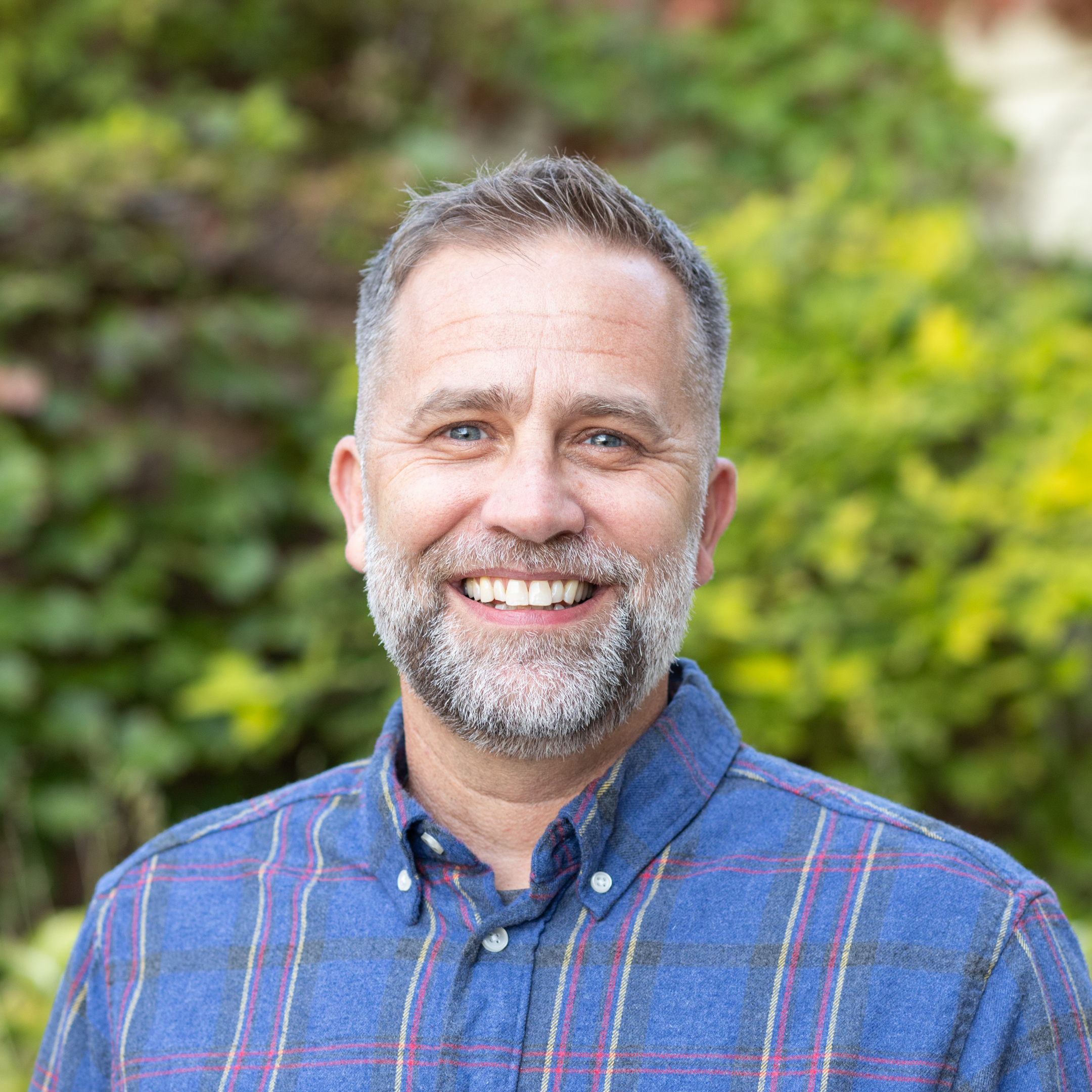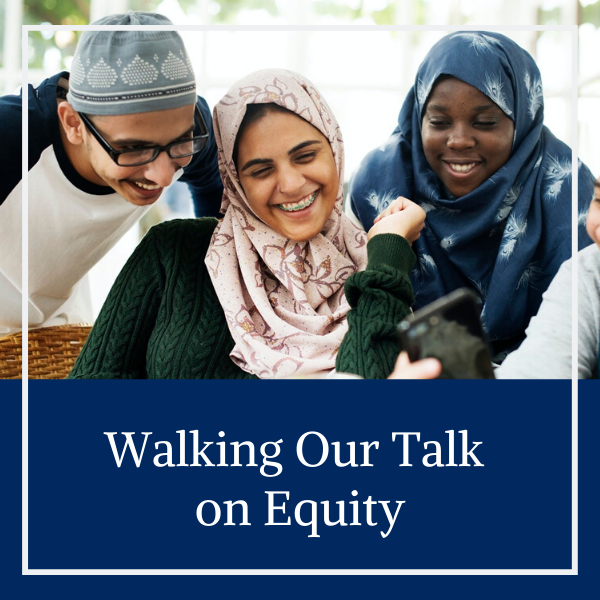Blog
Search Institute Spotlight: Meet Ben Houltberg
Dr. Ben Houltberg is Search Institute’s president and CEO. He shares his thoughts on challenges impacting positive youth development, how Search Institute is committed to be the connector between research and practice and what it means to take a strength-based approach to building relationships with young people.
What do you consider to be the biggest challenges impacting positive youth development (PYD) and thriving among young people today?
Adults falling back into a deficit-based view of young people AND the lack of collective action focused on creating relationship-rich environments that provide more equitable access to the resources and opportunities needed to unleash young peoples’ potential into the world.
The rise of the PYD framework in the late 90s and early 2000s was propelled by the need to challenge a problem-saturated narrative about young people, especially marginalized young people living in socioeconomic disadvantage. At the time, interventions and prevention efforts were treating young people as if they were problems to be solved, ignoring their strengths and assets. The important paradigm shift in PYD was toward recognizing, expanding and supporting individual and community strengths to not just survive but thrive.
I’m afraid that we are falling back into the risk-narrative for today’s youth. Whether it’s the levels of social media engagement, the rise of mental health issues or learning loss from the pandemic (or all of the above), the deficit-narrative of young people can be widely found in popular press, research articles and intervention efforts. Those topics are important to address, but a central focus on reducing risk is insufficient and limiting. A strength-based approach recognizes the incredible potential, passion and impact that young people can have on the world right now. It is important for adults to reflect on the following questions: How are we viewing today’s young people? What language are we using to describe young people? How can we make sure we do not fall into the trap of creating a problem-saturated narrative about young people? We have to be committed to changing the narrative.
How can we take a community-based approach to providing the supports and relationships that young people need?
No one person can be all things to all youth at all times but as a community we can. We must collectively create spaces where the insights, experiences and interests of all youth truly matter and provide them with better access to resources and opportunities that align with their passions and interests. BUT we know that youth from historically marginalized and minoritized communities face unique barriers in access to opportunities and experience intergenerational pain and trauma as a result of racism, poverty and discrimination. This requires us to actively work to remove barriers and provide youth with more equitable access to resources and opportunities that align with their passions and interests. It also requires providing relational healing to address the relational wounds. This can only happen through a web of developmental relationships — family, neighborhood, youth-serving organizations, schools, churches, organized activities — to simultaneously address the developmental needs of youth and provide the resources and opportunities for them to thrive. We must be more intentional about reflecting on whether we are impacting relationships in meaningful ways that are creating more equitable spaces for young people to thrive and contribute to changing their environments for the better.
Do adults make the mistake of assuming children are more resilient than they are?
A common mistake that people make is to view resilience as an individual mindset or attribute. This viewpoint can lead to unrealistic and harmful expectations for youth to “be resilient” without systemic changes or support in the environment. Resilience is not the result of individual effort or a specific attribute of a young person. Certainly young people have individual strengths and assets that are important for overcoming adversity. However, resilience requires access to resources and relationships that meet the basic developmental needs of feeling seen, heard, valued and safe in the face of adversity. This requires us to think about resilience as a shared responsibility. Over the past 20 years, our own research on the 40 Developmental Assets has shown the combined importance of internal and external assets in promoting resilience — lower levels of risk behaviors and higher levels of positive youth outcomes — despite socioeconomic adversity. At Search Institute, we believe that all young people deserve the opportunities and support to move beyond resilience to be on the path of thriving. We also recognize the need for creating more equitable spaces of healing, especially for communities of color and marginalized groups, and the ongoing need for systemic and structural change. We are committed to creating actionable resources informed by research knowledge, practitioner wisdom and youth insights that enable youth to thrive. When youth thrive, our communities thrive.
You discussed the need to change the narrative around young people. What role does Search Institute play in that?
The narratives and stories impacting young people are powerful, and the internalization of these narratives can become their reality in very powerful ways. All young people have immense potential, but trauma can significantly impact whether they experience and see that potential for themselves. All young people deserve to feel seen, heard, valued and safe. These are basic expectations, but in so many cases all kids aren’t experiencing this. Many communities of color and marginalized groups aren’t experiencing this. Systemic and structural racism isn’t going away without significant institutional change. How can we support communities that provide the conditions for resilience, but also allow for healing so young people can move to a place of thriving? What’s exciting is that with our work at Search Institute we are committed to being a connector between research and practice, particularly in communities that don’t have access to resources and building blocks for thriving and resiliency. Through our research, we are developing evidence-based approaches and strategies that youth-serving workers in all settings can apply.
All youth have something unique to offer the world, not just in the future, but right now. How do we think about relationships and creating space for young people to shine? When you work with young people and you see that spark, even a glimpse of it, there’s nothing better. Close connections provide the oxygen for sparks to grow.
What does the future of positive youth development look like?
The future of positive youth development is being able to address the complexity of the pain, the inequities, and the trauma in a way that removes those challenges and barriers, but holds onto the strengths and opportunities that young people bring to the table. Positive Youth Development was described in the early days as simultaneously a field of research and an arena of practice. This is an important reminder of the equal importance of research and practice as we move towards a future where all youth have what they need to thrive. PYD emerged from a set of shared ideals with researchers, practitioners, funders, and policymakers. I believe we need this type of collaborative effort in the future of PYD. Personally, I am also committed to this work not just professionally but as a father of two young children and a desire to see them be active contributors to a better world in the future.
Dr. Ben Houltberg is a developmental scientist, former tenured faculty member, social entrepreneur, and experienced marriage and family therapist. He is widely published on topics such as adolescent social and emotional competencies, resilience through relationships, and character and identity development through sports.
Recent publications by Dr. Ben Houltberg include a chapter in the Handbook of Research on Student Engagement, Developmental Relationships and Student Motivation: Current Research and Future Directions and Effects of developmental relationships on the well-being of youth in high-stress families for Family Relations, Interdisciplinary Journal of Applied Family Science.
Learn more about Dr. Houltberg by reading his bio.




